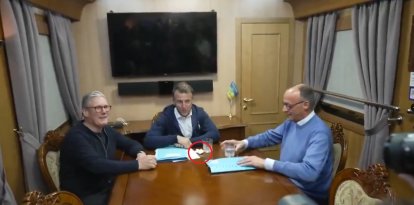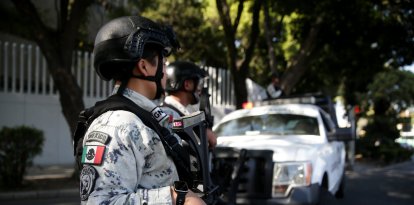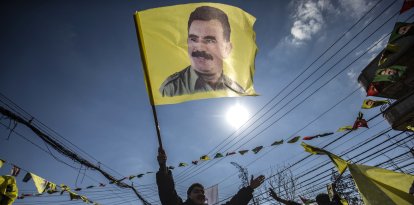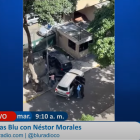Orwellian persecution: Maduro promotes the application "VenApp" for Chavistas to denounce their anti-Chavista neighbors
Since Sunday, the regime's security forces detained more than a thousand people. Human Rights activists denounce to VOZ arbitrariness in the detention commands.
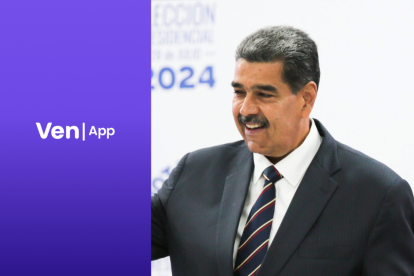
"VenApp", the app used by Maduro to annihilate dissidence.
Venezuela is going through its darkest hours. Since July 28, after the Venezuelan National Electoral Council (CNE) announced a clamorous electoral fraud condemned by the international community, Venezuelans took to the streets across the country to protest against the regime of Nicolas Maduro and the electoral authorities. The response of the Chavista dictatorship was fierce, savage. Since that time, security forces detained more than a thousand people, according to official figures, although some human rights activists tell VOZ that it could be more, as the number of detainees increases by the minute. There have also been 16 confirmed killings of protesters (a figure that could also be higher) and hundreds of people shot and wounded. All this, in less than 72 hours after Sunday's results.
The extremely high number of detainees is not surprising considering the mechanisms applied by Maduro's dictatorship to persecute dissidents. Videos have been published on social networks showing illegal kidnappings in broad daylight against ordinary citizens and political leaders, such as the case of Freddy Superlano, the political coordinator of Voluntad Popular, whose party denounced that its leader is being tortured by the Chavista regime while he is missing. In turn, different political activists have denounced that the Chavista regime is using a new, much more sophisticated persecution tool: the denunciation of peaceful demonstrators by anonymous accounts in social networks and users in a mobile application which, until hours ago, was available in the Google and Apple app stores, VenApp.
The Chavista Stasi
It is an application that became popular since its launch in 2022, with the promise of being a nexus between Venezuelans and the institutions in charge of various public services. In July 2023, the Venezuelan portal "Fake News Hunters" exposed the creator of the app: Brazilian André Golabek.
According to the report, this government app is being used by the Maduro regime to capture millions of data from Venezuelan citizens.
According to the portal, Golabek, in addition to VenApp, also founded Venqis, "a political communication company that advised campaigns that coincided with the activity of hundreds of fake accounts that spread disinformation and propaganda in favor of aspirants" of the regime to governorships in Venezuela and officials in Panama, Bolivia and the Dominican Republic.
Now, after VenApp joined the chavista campaign a week ago, the app is being used for a much more shady and vile purpose: to denounce "fascist" protests, or as Maduro calls them, "Guarimbas".
A propagandist portal of the regime, called "Diario Vea", explains the process of how VenApp works to denounce the "fascist guarimbas":
"It is already a fact. In the VenApp application is enabled the window to denounce delinquent and criminal groups that try to alter the peace of the country. The measure came a few hours after the announcement of the re-elected head of state, Nicolás Maduro, to create this tool. Through Line 58 of the VenApp the option Denuncia will appear; when you select it, it will pop up: 'Guarimba fascista'. Then, in subcategories, you will find 10 options to report looting, damage to public property, disturbance of public order, attacks on people, disinformation, theft, closures of public roads, threats, fascist guarimbas, others." .
Maduro himself, on Tuesday, July 30, publicly stated in a threatening manner that a window had been created in VenApp that would be enabled to denounce "fascist guarimbas".
Maduro assured that the denouncers would have "all the privacy and confidentiality for you to make the denouncements, reach the Presidential Command post and immediate action will be taken".
In that sense, Maduro's message is clear: that Chavista supporters of his regime "anonymously" denounce their anti-Chavista neighbors, in an unofficial intelligence system reminiscent of the Stasi in the German Democratic Republic (GDR), which was the main police and intelligence network of that regime that thrived on unofficial whistleblowers: ordinary citizens, friends, neighbors and relatives sympathetic to the regime who did not tolerate political dissent.
VOZ, using a Venezuelan identity card, I can independently confirm that the application is designed so that, if desired, it can be used to persecute dissent.
However, Maduro's words seem to have backfired on his own regime.
After he gave greater visibility to VenApp, various users on social networks, especially on X, organized to massively denounce the application which, at the time of publishing this article, is no longer available on either Google Play or the App Store.
However, removing VenApp from the app stores will not solve the problem, as regime whistleblowers who have already downloaded the application can still rely on the app on their mobile device to help reveal the location of opposition protesters.
Adiós a VenApp de la App Store de Apple, después de que Nicolás Maduro anunciara una actualización para la persecución política de la oposición. pic.twitter.com/6miGMD75qz
— Melanio Escobar (@MelanioBar) July 31, 2024
Mistreatment of detainees
While independent organizations such as Foro Penal claim 429 verified arrests in the post-election protests, human rights activists on the ground told VOZ that the figure is already outdated and will most likely be updated in a matter of hours.
The more realistic figure on detainees is around 1,000 people and, according to an activist from the Civilis organization, the situation of detainees is very complex in the Venezuelan capital Caracas.
First of all, the activist, whose name was withheld for security reasons, denounced to VOZ the dynamics of arrests in the capital, pointing out irregularities and violations of fundamental rights in the detention and processing procedures.
According to the activist, the detainees are taken to security commands or to the Maripérez National Command, where the initial review is carried out before transferring the men to the headquarters of the National Bolivarian Police (PNB) in Boleíta and the women to the headquarters in El Valle. In all facilities, according to various testimonies gathered by VOZ, family members do not have direct access to the detainees, having to make do with handwritten lists that officials verify in an imprecise manner.
"On top of this, the food the same. You stand in line and give it to the official, but you have no certainty that they are delivered," the activist told VOZ.
The situation also affects defense lawyers, who face tremendous restrictions on seeing their clients, since they are not allowed to see or talk to their defendants. According to the activist, officials claim that they have an "order" in force that they are not allowed to see the detainees, and that the lawyers will be called for hearings, without specifying when or where they will be held.
Likewise, the activist mentioned that rumors are circulating in the places of detention about the holding of hearings inside the PNB facilities, with public defenders, a situation that could not yet be independently confirmed. In one specific case, the lawyers left a written document in the hope that it would be considered and registered, trying to prevent a hearing from being held without their presence and with public defense, a situation that would leave the detainee in total defenselessness.
The denunciations about the situation of the detainees come when the dictator Maduro himself, in a video in X with the military, affirmed that the regime has already arrested "1,200 criminals", making reference to the peaceful Venezuelan demonstrators and citizens who were arrested since Sunday.
La derecha no ha podido ni podrá con nosotros, por el contrario, cada agresión nos fortalece más y nos hace invencibles... pic.twitter.com/BLQcgzlCIC
— Nicolás Maduro (@NicolasMaduro) March 19, 2014
RECOMMENDATION



